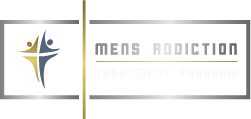The opioid addiction crisis has reached alarming levels, affecting individuals and communities across the globe. It’s a complex issue that requires comprehensive and compassionate solutions. In this blog post, we will explore effective ways to treat opioid addiction, from traditional methods to emerging approaches.
If you are struggling with opioid abuse and addiction, know that help is available and recovery is possible. Seek help from opioid addiction treatment in Cohasset today.
Understanding Opioid Addiction
Opioid addiction is a chronic condition characterized by the compulsive use of opioids despite negative consequences. Opioids, which include prescription painkillers and illicit drugs like heroin, bind to receptors in the brain, producing a euphoric effect. Over time, the body develops tolerance, requiring higher doses to achieve the same effect. This cycle reinforces addiction and makes it challenging to quit.
Effective Ways for Treating Opioid Addiction
A painkiller rehab program in Cohasset will equip you with the tools and ongoing support you need to overcome addiction and maintain long-term sobriety. Standard methods of treatment for opioid addiction include the following:
· Medication-assisted treatment (MAT) – MAT combines the use of medications, such as methadone, buprenorphine, or naltrexone, with counseling and behavioral therapies. These medications help alleviate withdrawal symptoms and cravings, allowing individuals to focus on their recovery.
· Behavioral therapies – These therapies, including cognitive-behavioral therapy (CBT), motivational interviewing (MI), and contingency management (CM), aim to modify destructive thought patterns, develop coping skills, and promote positive behavioral changes.
· Support groups – Peer support groups, such as Narcotics Anonymous (NA) or SMART Recovery, offer a sense of community, understanding, and accountability. They provide a safe space for individuals to share experiences, receive guidance, and maintain long-term sobriety.
Emerging methods that are gaining popularity in the field of addiction treatment include:
· Holistic options – Holistic treatments, including acupuncture, yoga, and massage therapy, address the physical, mental, and emotional aspects of addiction. They promote overall well-being and support the recovery process.
· Mindfulness and meditation – These practices cultivate self-awareness, reduce stress, and enhance emotional regulation. They can be powerful tools for managing cravings, improving mental clarity, and fostering resilience.
· Exercise and physical activity – Engaging in regular physical activity releases endorphins, boosts mood, and reduces stress. Exercise can also help alleviate withdrawal symptoms and improve overall physical and mental health.
· Alternative medicine – Some individuals find relief from opioid addiction through alternative medicine approaches, such as herbal supplements, acupuncture, or homeopathy. While more research is needed in this area, these approaches may be beneficial when used in conjunction with evidence-based treatments.
Combining traditional and emerging treatment approaches can maximize the chances of successful recovery. By addressing the physical, psychological, and social aspects of addiction, individuals can create a comprehensive treatment plan tailored to their specific needs. This integrative approach can provide a solid foundation for long-term recovery and reduce the risk of relapse. Seeking substance abuse treatment in Massachusetts offers the best chance of making a successful recovery.
Treating Opioid Addiction: Challenges and Considerations
Treating opioid addiction is not without its challenges. Stigma and societal perception can hinder individuals from seeking help and receiving the support they need. It’s crucial to promote understanding and empathy, encouraging open conversations about addiction and recovery. Additionally, access to treatment resources, particularly in underserved communities, remains a significant barrier that must be addressed.
Treating opioid addiction requires a multifaceted and individualized approach. Individuals can increase their chances of recovery by combining traditional methods, such as medication-assisted treatment and behavioral therapies, with emerging approaches like holistic therapies and mindfulness practices. It’s essential to address each person’s unique needs and provide a supportive environment that fosters healing and growth.
Find Opioid Addiction Treatment in Massachusetts Today
If you or someone you know is struggling with opioid addiction, remember that help is available. Reach out to healthcare professionals, addiction specialists, or local support groups to start the journey toward recovery. With the right treatment and support, individuals can overcome opioid addiction and build fulfilling, drug-free lives.
